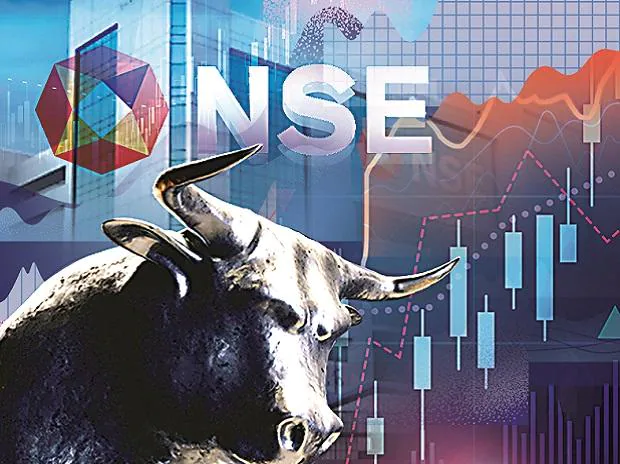[ad_1]

Thronged by hundreds of people, including some Bollywood celebrities, Tim Cook’s excitement was palpable as the chief executive officer of Apple Inc. officially opened its first company-owned store in India in April.
India is at a “tipping point,” he went on to say on a call with analysts after his visit. It was that same month when India also earned a new title as the world’s most populous nation, burnishing the appeal of sectors that cater to a burgeoning middle class and young consumers.

Tim Cook during the opening of the new Apple store in Mumbai on April 18.
The milestone serves as a reminder of the growth potential for India’s $3.4 trillion stock market – which recently reclaimed its spot as the world’s fifth largest – as the South Asian economy takes a bigger pie in global manufacturing and consumption, currently dominated by China. With two-thirds of India’s 1.4 billion population in the working age, its “vibrancy” and “dynamism” – two attributes Cook used to describe the market – contrast with many Asian peers grappling with shrinking populations.

Home to more than 5,000 listed companies, India offers global investors a wide range of options. Consumption, financial services, infrastructure, digitalization and health care are among sectors seen benefiting the most in the coming years from the demographic composition.
“The great thing about India is that with 1.4 billion people, you can go into any industry, there’s a market domestically,” Mark Mobius, founding partner of Mobius Capital Partners, said at an event in Hong Kong on Friday. When asked about what he likes in India, the veteran emerging-markets investor mentioned infrastructure – companies that do building materials, health care and Internet-related businesses like mapping companies.
Heated tensions between China and the West are also providing a tailwind as India is seen as an alternative by many global firms seeking to diversify their geographic footprints. Micron Technology Inc. is said to be close to an agreement to commit at least $1 billion toward setting up a semiconductor packaging factory in the nation, Bloomberg News reported on Friday. That report follows a Chinese ban on the use of Micron chips earlier this year.

India’s promising prospects aside, much will rest on Prime Minister Narendra Modi’s administration – which is expected to win another term in 2024 – and future governments, to ensure this demographic dividend can materialize into economic benefits.
Building fast and adequate infrastructure, lifting education standards and creating jobs for millions of people entering the market every year will be no easy task. Problems like poverty and malnutrition continue to linger and social tensions can boil over if inequality widens. And India has its own set of geopolitical worries as tensions with neighboring China and Pakistan persist.
Yet with the right policy mix, the process of economic transformation should by itself create some stock-market winners.
Here is a look at some of the key themes that investors highlighted:
Consumption
With a median age of just 28 versus 38 in China, India is forecast to become the world’s largest “young consumer market” by 2030, according to the Brookings Institution. A rapid rise in disposable incomes is seen boosting demand for everything from vehicles to mobile phones and luxury items.

Visitors at the Tata Motors booth at the India Auto Expo 2023 in Noida, earlier in January.
Ken Peng, head of Asia Pacific investment strategy at Citi Global Wealth Investments, said the upgrade to luxury items and home improvement from basic necessities will be among the “big trends” that he wants to capture.
Stocks that may benefit include car manufacturers like Maruti Suzuki India Ltd. and Tata Motors Ltd. and jewelery maker including Titan Co. Staples producers such as Hindustan Unilever Ltd. will remain a focus as they can sell higher-margin products.
Infrastructure
India’s ambition of becoming a manufacturing hub is gaining more traction as global firms see geopolitical and regulatory risks when investing in China. Tesla Inc. officials visited India in May and discussed the possible local sourcing of components and incentives, eventually looking to establish a domestic factory, according to a Bloomberg News report.
China’s “factory story is fading away. And I think that’s probably going to India and Asean to a large extent,” said Evelyn Yeo, head of Asia investments at Pictet Wealth Management. Yeo, however, warned that the biggest issue with India is the lack of infrastructure and supply chain completeness.
Companies like ABB India Ltd., Siemens Ltd., Larsen & Toubro Ltd. and several state-run enterprises are seen as beneficiaries amid Modi’s push to upgrade infrastructure.
Financial Services
Investors see promising returns in India’s financial industry as a ballooning middle class and more workers translate into increased financialization of household savings.
Managed investments, which include mutual funds, life insurance and retirement funds can reach 315 trillion rupees ($3.8 trillion) by 2027 from 135 trillion rupees as of March last year, according to rating firm Crisil Ltd.
Top lenders ICICI Bank Ltd., HDFC Bank Ltd. and State Bank of India are seen to have the potential to grow further. Shadow lender Bajaj Finance Ltd. and insurers such as Life Insurance Corp of India and HDFC Life Insurance Co. Ltd. will continue to receive the spotlight as the financial industry matures.

Digitalisation
India’s aspiring tech firms are competing with global rivals.
The listing of several startups since 2021 has given overseas investors an opportunity to participate in the country’s digital story. But as the pandemic tech boom cooled along with higher interest rests, many including Paytm, Zomato Ltd. and Nykaa currently trade at significant loss from their post-listing highs.
But the emergence of a new cohort of digital shoppers is seen as promising.
“In the last two to three years, along with Millennials and Boomers, more shoppers have emerged,” Sachin Salgaonkar of BofA Securities wrote in a note last month. While many of India’s Boomers have gone back to the pre-pandemic habit of shopping offline, the country’s “Generation Z” – those born after 1996 – and women over the age of 40 years in smaller towns are providing fresh impetus to digital commerce, Salgaonkar wrote.
Health Care
While the ratio of India’s elderly population – those above 60 years of age – currently stands at just above 10% according to the United Nations data, the cohort is projected to grow fast as life expectancy extends. That points to a substantial rise in health care demand.
ICICI Securities Ltd. expects earnings of hospital companies to rise more than 17% over the next three years, aided by higher count of specialty surgeries and additional beds.
Hospital chain owners like Apollo Hospitals Enterprise Ltd., Fortis Healthcare Ltd. and HealthCare Global Enterprises Ltd. are among those seen benefiting from increased demand. Drug makers such as Sun Pharmaceutical Industries Ltd., Cipla Ltd. and Dr Reddy’s Laboratories Ltd. are also potential winners.
[ad_2]
Source link
For more information call us at 9891563359.
We are a group of best insurance advisors in Delhi. We are experts in LIC and have received number of awards.
If you are near Delhi or Rohini or Pitampura Contact Us Here



 Dear Reader,
Dear Reader,